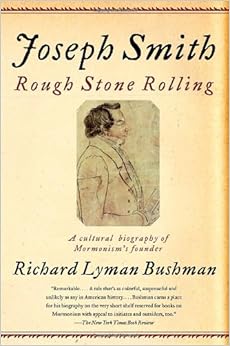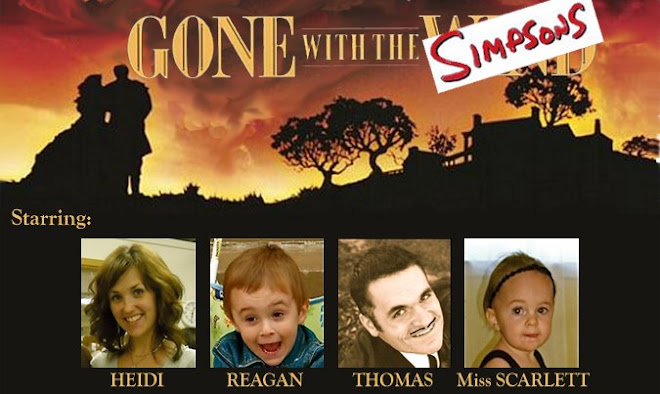since november of last year and for about a year while we still lived in simpsonville, my calling(or assigned responsibility) at church has been as the 4th sunday teaching for our times teacher. it's been one of my favorite callings ever. if i'm being honest, i'm a bit selfish because it allows me to attend relief society and sunday school and i can volunteer to fill in in primary but i also don't have to worry about most non-sabbath calling requirements besides preparing a lesson each month. the other reason it's my favorite is because i get to really ponder and learn. thinking deeply about spiritual things is a welcome respite from my regularly scheduled program.
The overarching lesson that i have learned is that EACH and EVERY lesson has had some sort of mention about our need to sustain our leaders and follow the prophet and not have a a limited view of the Gospel. Once we start to think that Church leadership should be infallible, we start to become more critical of them and we start to have a spiritual downfall. the more i have studied the messages of the prophets, the more i have learned that there are many flaws in each of them but that they were always trying their best to please God. i know that there is a place for me in the gospel because i continually and without fail make mistakes but that the Lord still wants me here. His church is truly a place for imperfect people who are striving to do more.
a short list of favorite talks i've prepared lessons from and a few fantastic quotes:
"Lord, is it I?" by Dieter F. Utchdorf
(the lesson that has helped me the most)
"I wonder what each of us would do if we were asked that question by the Savior. Would we look at those around us and say in our hearts, “He’s probably talking about Brother Johnson. I’ve always wondered about him,” or “I’m glad Brother Brown is here. He really needs to hear this message”? Or would we, like those disciples of old, look inward and ask that penetrating question: “Is it I?”
In these simple words, “Lord, is it I?” lies the beginning of wisdom and the pathway to personal conversion and lasting change.”
"Come Join With Us" by president dieter f. utchdorf
“As an Apostle of the Lord Jesus Christ and as one who has
seen firsthand the councils and workings of this Church, I bear solemn witness
that no decision of significance affecting this Church or its members is ever
made without earnestly seeking the inspiration, guidance, and approbation of
our Eternal Father. This is the Church of Jesus Christ. God will not allow His
Church to drift from its appointed course or fail to fulfill its divine destiny.”
Joseph Smith by elder neil andersen
i found this first quote from a friend on facebook and it really inspired me to immerse myself in study of the life of Joseph Smith. i started to read, Rough Stone Rolling, by richard lyman bushman, which i am still wading through, and i even got out my violin and practiced and learned a new arrangement of the song, "Joseph Smith's First Prayer" which i performed in relief society before my lesson. it was actually fun. being a stay at home mom, while infinitely important, sometimes results in my brain feeling less than elastic. reading something that required thought and working on music was a nice mental exercise
"I am suggesting that we can be
simultaneously more confident, candid, and studious in our approach to Church
history and more faithful, hopeful, and charitable, too. A study of Church
history will help us avoid the myth of prophetic infallibility on the one hand
and, on the other, help us view past leaders more charitably. Similarly, a
careful study of Church history will keep us from portraying this or that
question as “settled” when there is not apostolic unity on the particular
topic, but we’ll also be better able to see what (or more properly, Who) stands
at the center of our faith, this restored Church. And, significantly, we’ll
find it difficult to seriously study Church history without a deepened sense of
humility"- spencer fluhman
“Each
believer needs a spiritual confirmation of the divine mission and character of
the Prophet Joseph Smith. This is true for every generation. Spiritual
questions deserve spiritual answers from God.” -Elder Andersen

Loving others and living with differences by Dallin H. Oaks
“We are to live in the world but not be of the
world. We must live in the world because, as Jesus taught in a parable, His
kingdom is “like leaven,” whose function is to raise the whole mass by its
influence (see Luke
13:21;Matthew 13:33;
see also 1 Corinthians
5:6–8). His followers cannot do that if they associate only
with those who share their beliefs and practices. But the Savior also taught
that if we love Him, we will keep His commandments.” (see John
14:15).
Marriage: Watch and Learn by L. Whitney Clayton
(probably my 2nd favorite lesson, worth multiple reads and rereads no matter if you're married or not)
"Successful eternal marriages are built on the
foundation of faith in the Lord Jesus Christ and adherence to His teachings. I have observed that couples who have made their
marriages priceless practice the patterns of faith: they attend sacrament and other meetings every week, hold family home
evening, pray and study the scriptures together and as individuals, and pay an
honest tithing. Their mutual quest is to be obedient and good. They
do not consider the commandments to be a buffet from which they can pick and
choose only the most appealing offerings."
"Repentance. I have learned that happy
marriages rely on the gift of repentance. It is an essential element in every
good marital relationship. Spouses who regularly conduct honest
self-examination and promptly take needed steps to repent and improve
experience a healing balm in their marriages. Repentance helps restore and
maintain harmony and peace."
(heidi thoughts- Self-examination- does this involve
any form of accusation? I’ve said some things that I’ve felt needed to be
addressed, but I can say whole heartedly, that without spiritual reflection and
honesty and kindness, I’m just nagging or picking fights.)
Stay in the boat and Hold On! by M. Russell Ballard
“President
Brigham Young commonly employed “the Old Ship Zion” as a metaphor for The
Church of Jesus
Christof
Latter-day Saints.
He
said on one occasion: “We are in the midst of the ocean. A storm comes on, and,
as sailors say, she labors very hard. ‘I am not going to stay here,’ says one;
‘I don’t believe this is the “Ship Zion.”’ ‘But we are in the midst of the
ocean.’ ‘I don’t care, I am not going to stay here.’ Off goes the coat, and he
jumps overboard. Will he not be drowned? Yes. So with those who leave this
Church. It is the ‘Old Ship Zion,’ let us stay in it. On another occasion,
President Young said that he also worried about people losing their way when
they were being blessed—when life was good: “It is in calm weather, when the
old ship of Zion is sailing with a gentle breeze, [and] when all is quiet on
deck, that some of the brethren want to go out in the whaling boats to have … a
swim, and some get drowned, others drifted away, and others again get back to
the ship. Let us stick to the old ship and she will carry us [safely] into the
harbor; you need not be concerned.”
The Parable of the Sower by Dallin H. Oaks
“Another potential destroyer of spiritual roots—accelerated by current
technology but not unique to it—is the keyhole view of the gospel or the
Church. This limited view focuses on a particular doctrine or practice or
perceived deficiency in a leader and ignores the grand panorama of the gospel
plan and the personal and communal fruits of its harvest. President
Gordon B. Hinckley gave a vivid description of one aspect of this keyhole
view. He told a BYU audience about political commentators “aflame with
indignation” at a then-recent news event. “With studied art they poured out the
sour vinegar of invective and anger. … Surely,” he concluded, “this is the
age and place of the gifted pickle sucker.”1 In
contrast, to be securely rooted in the gospel, we must be moderate and measured
in criticism and seek always for the broader view of the majestic work of God.”



















